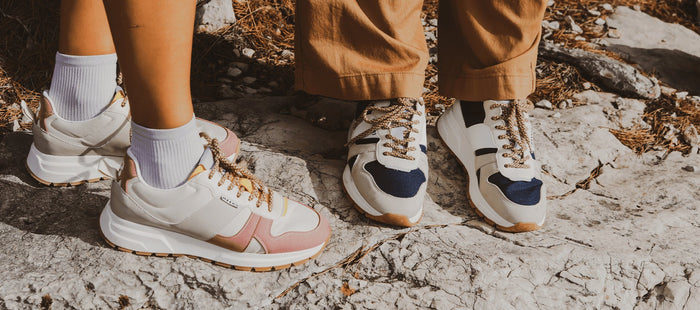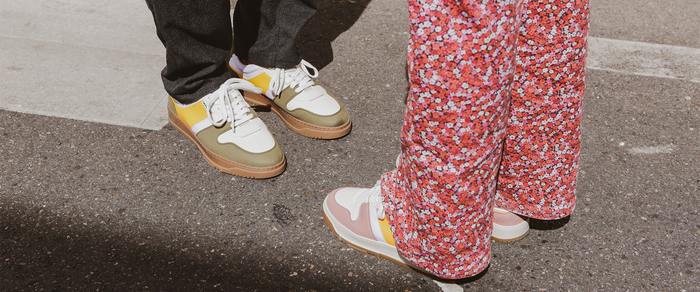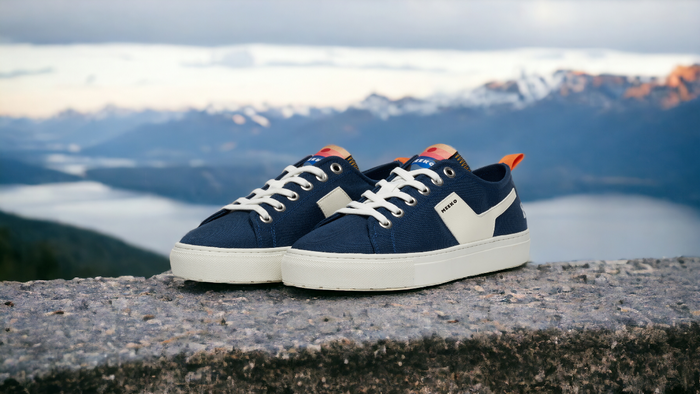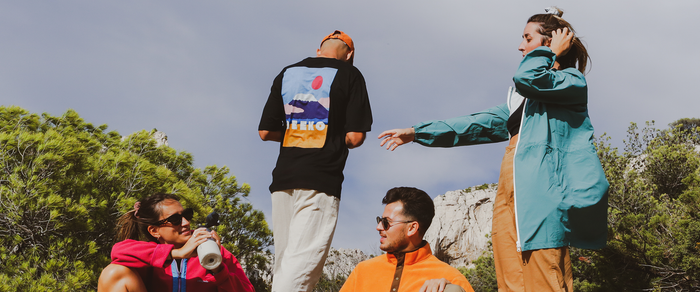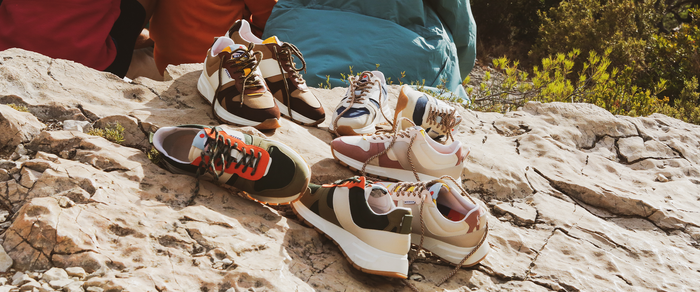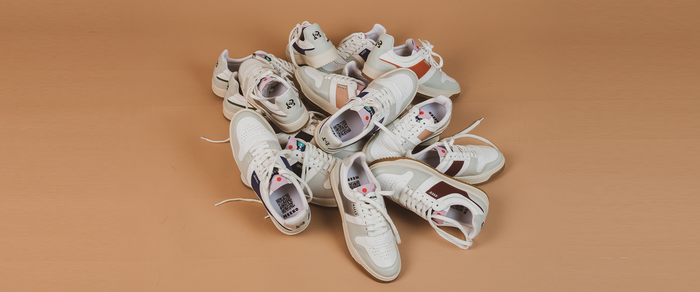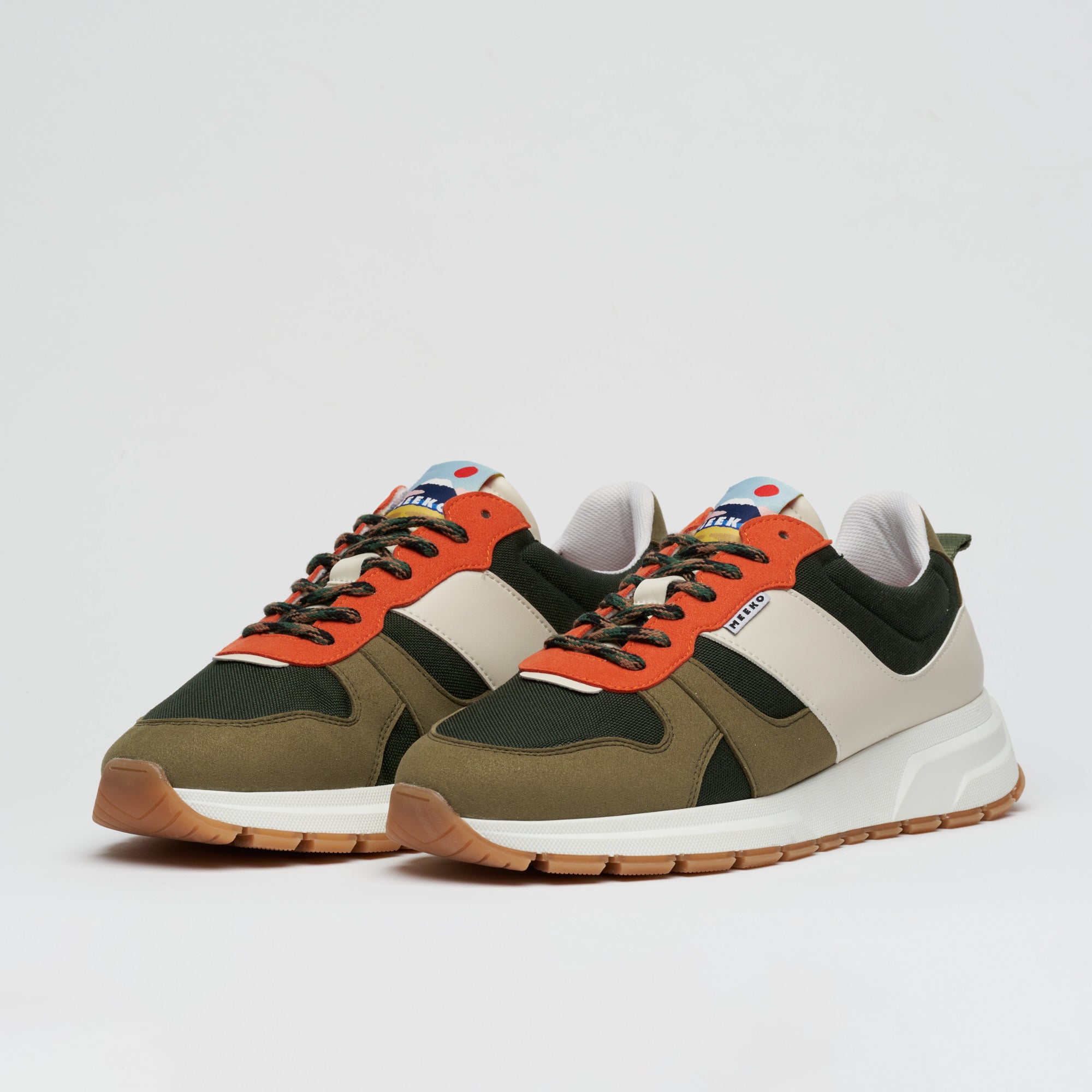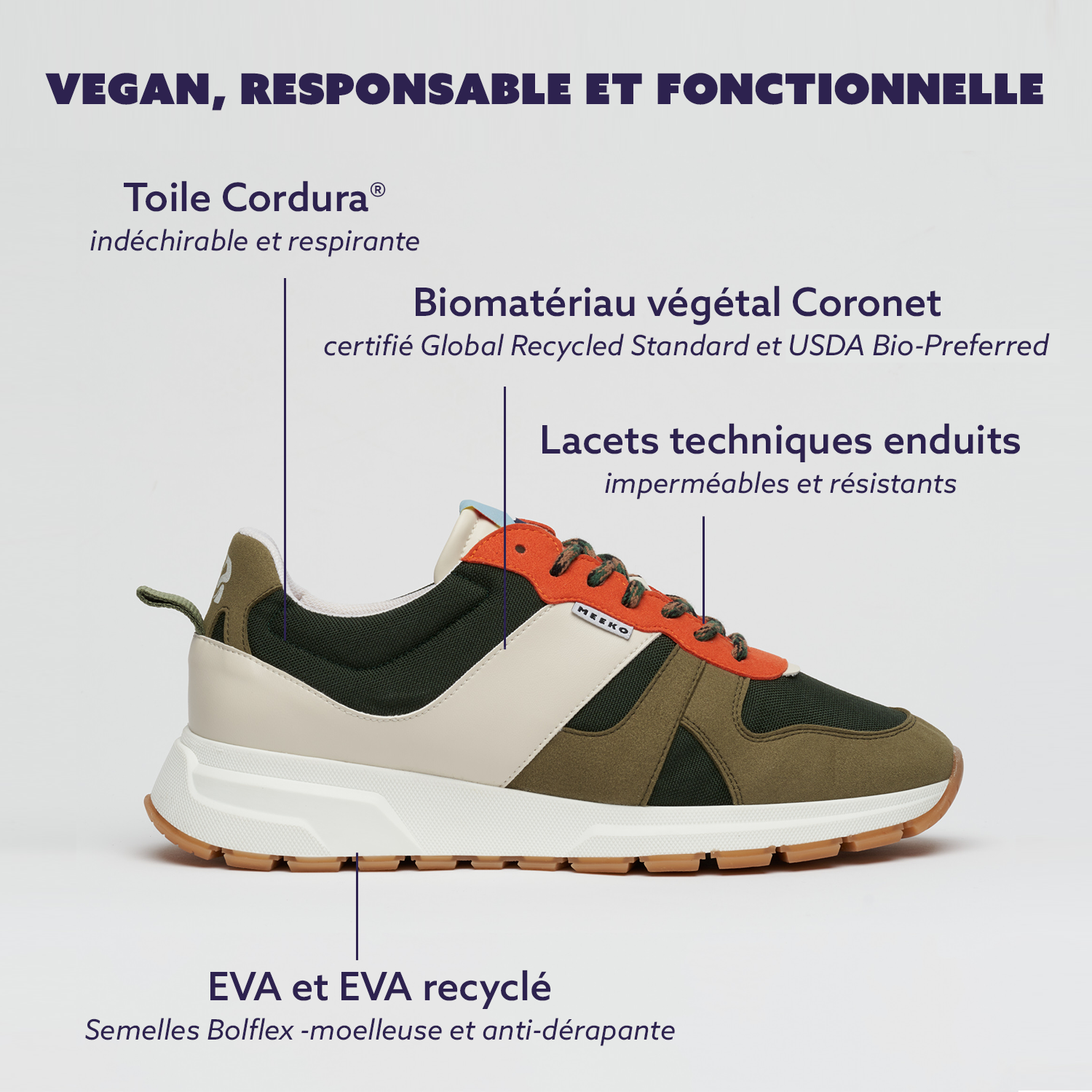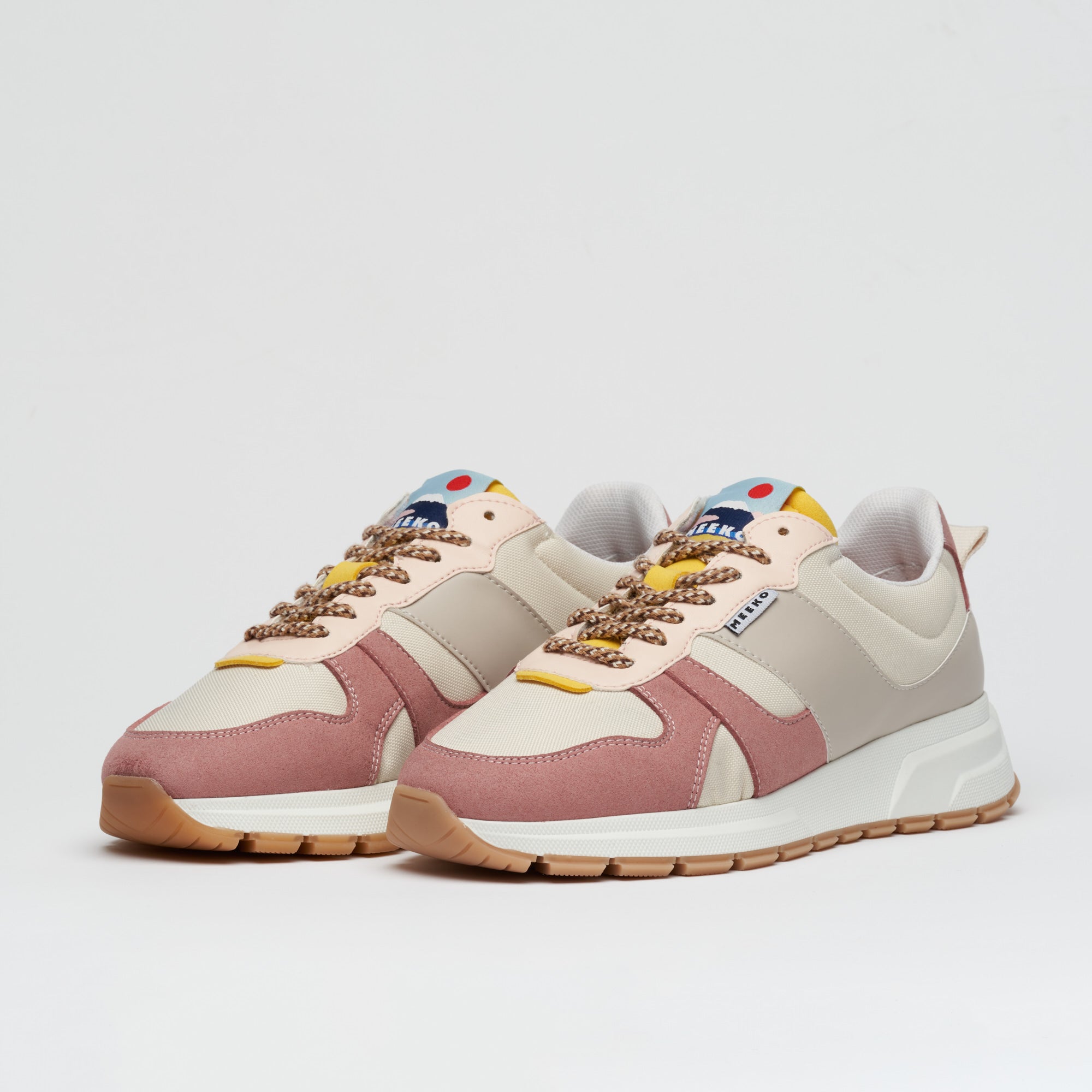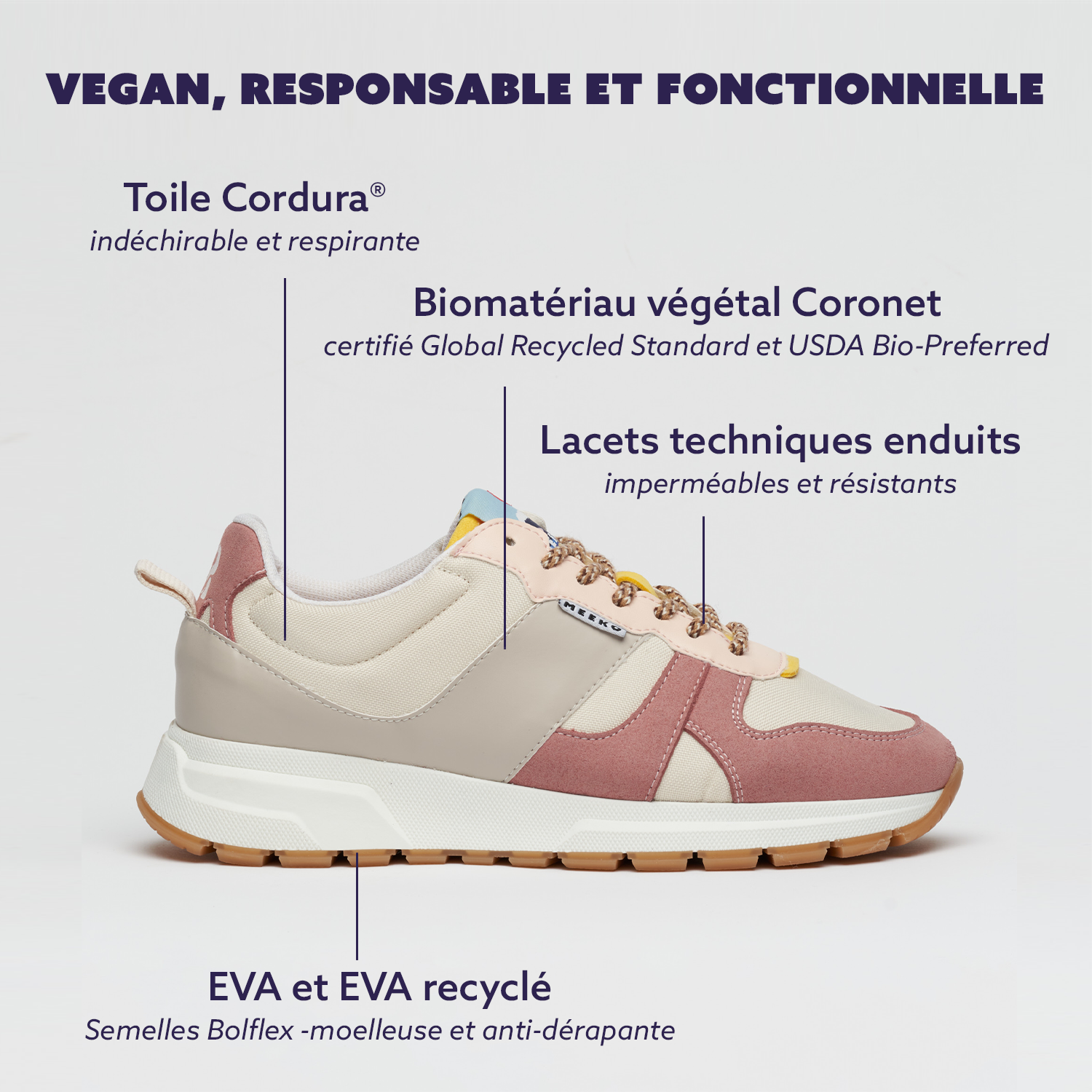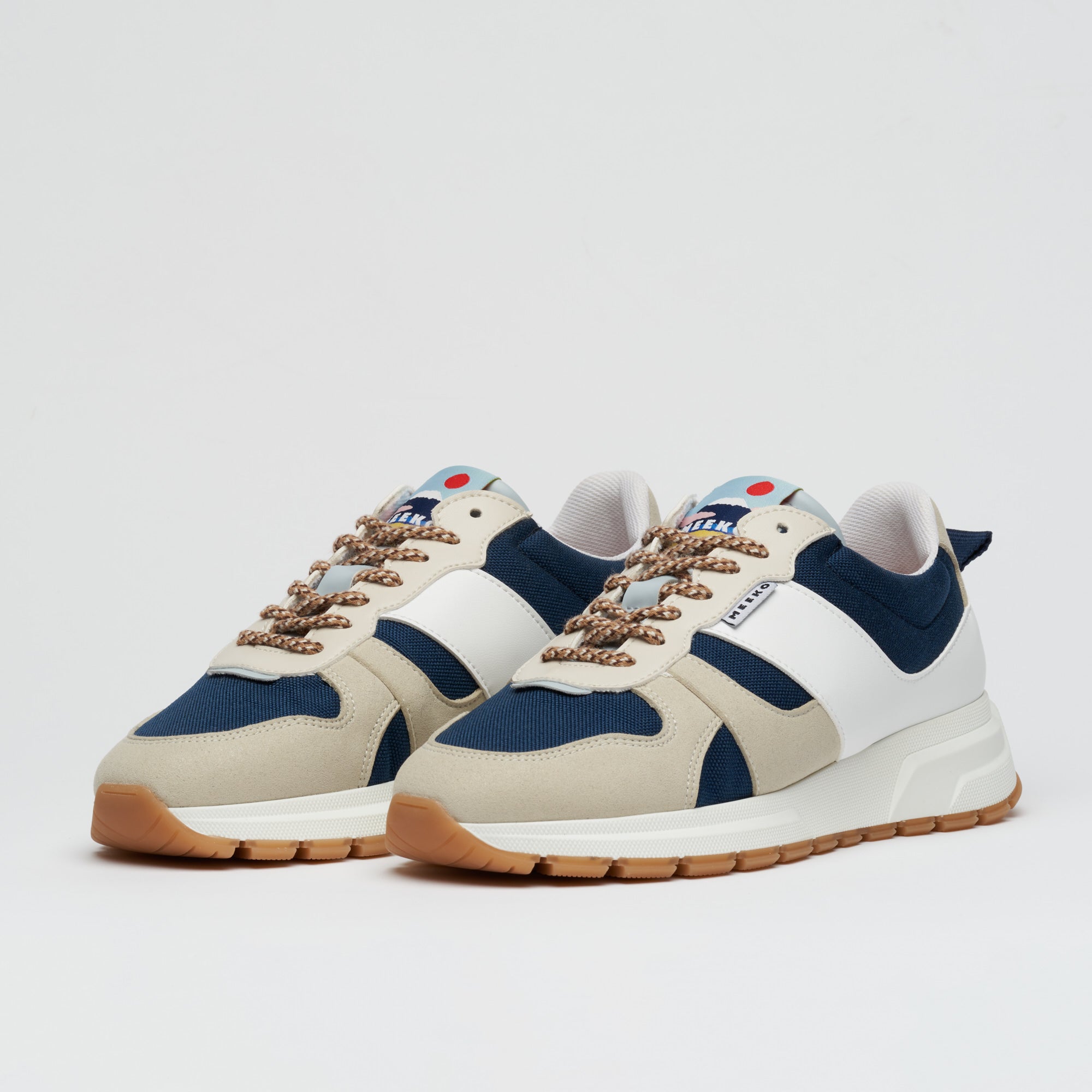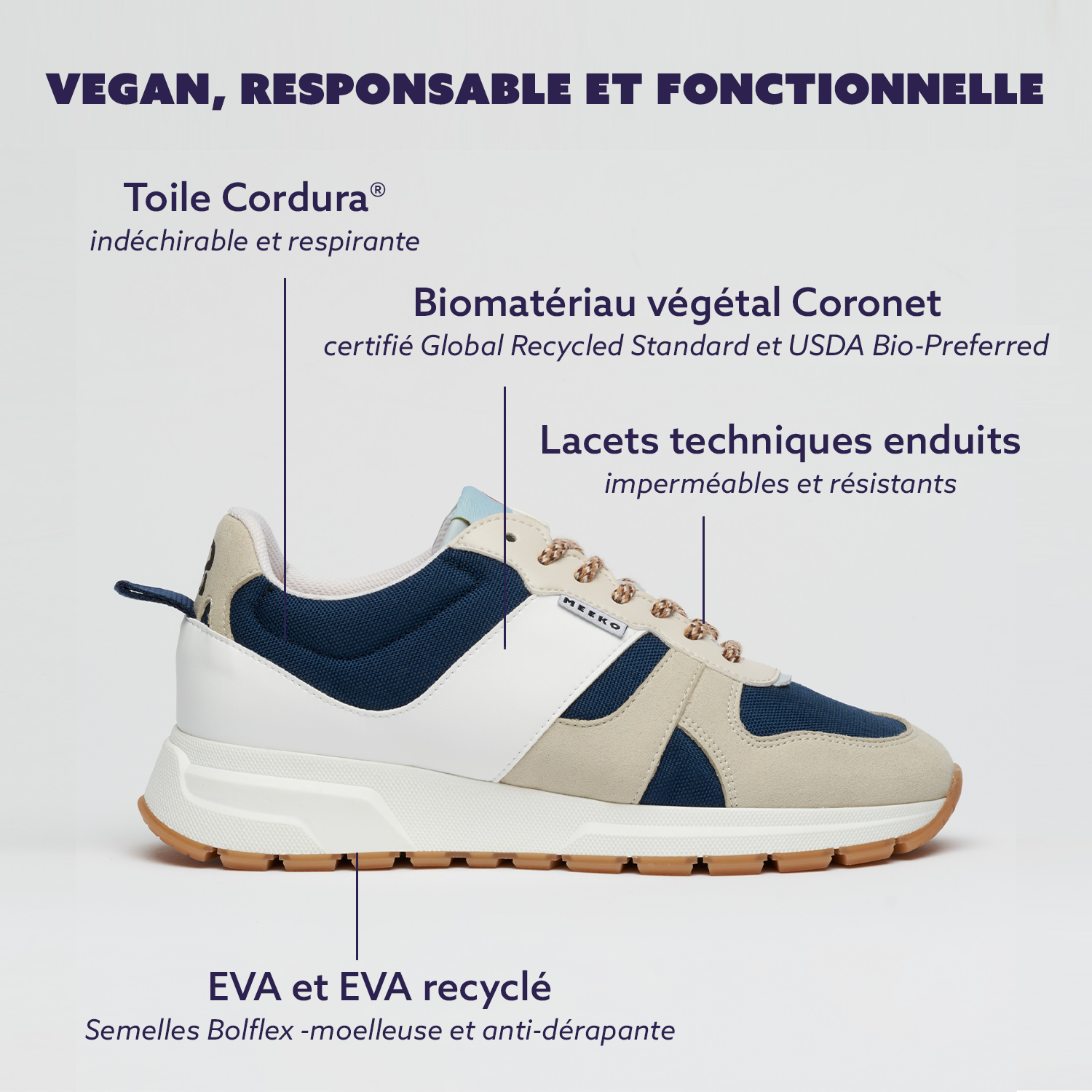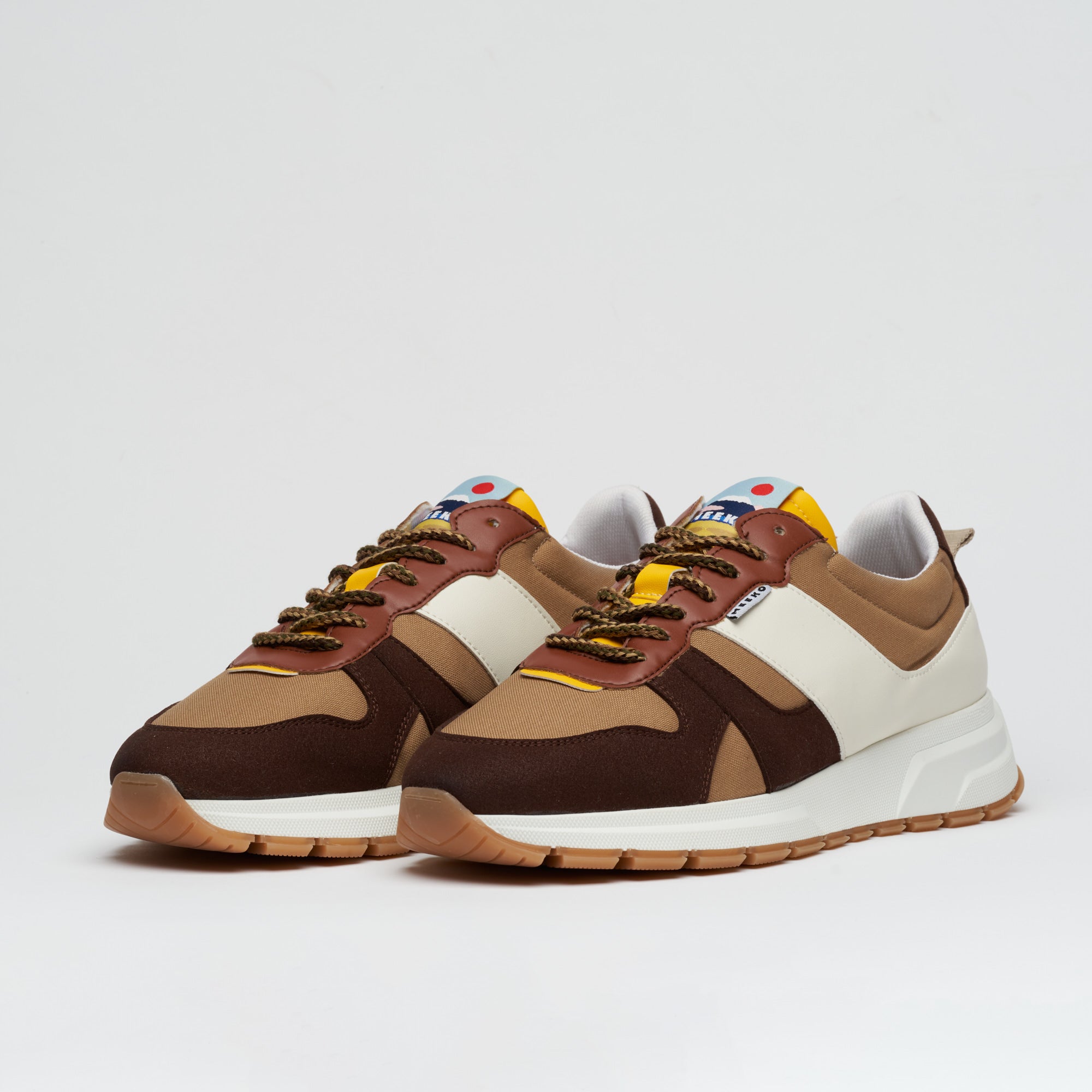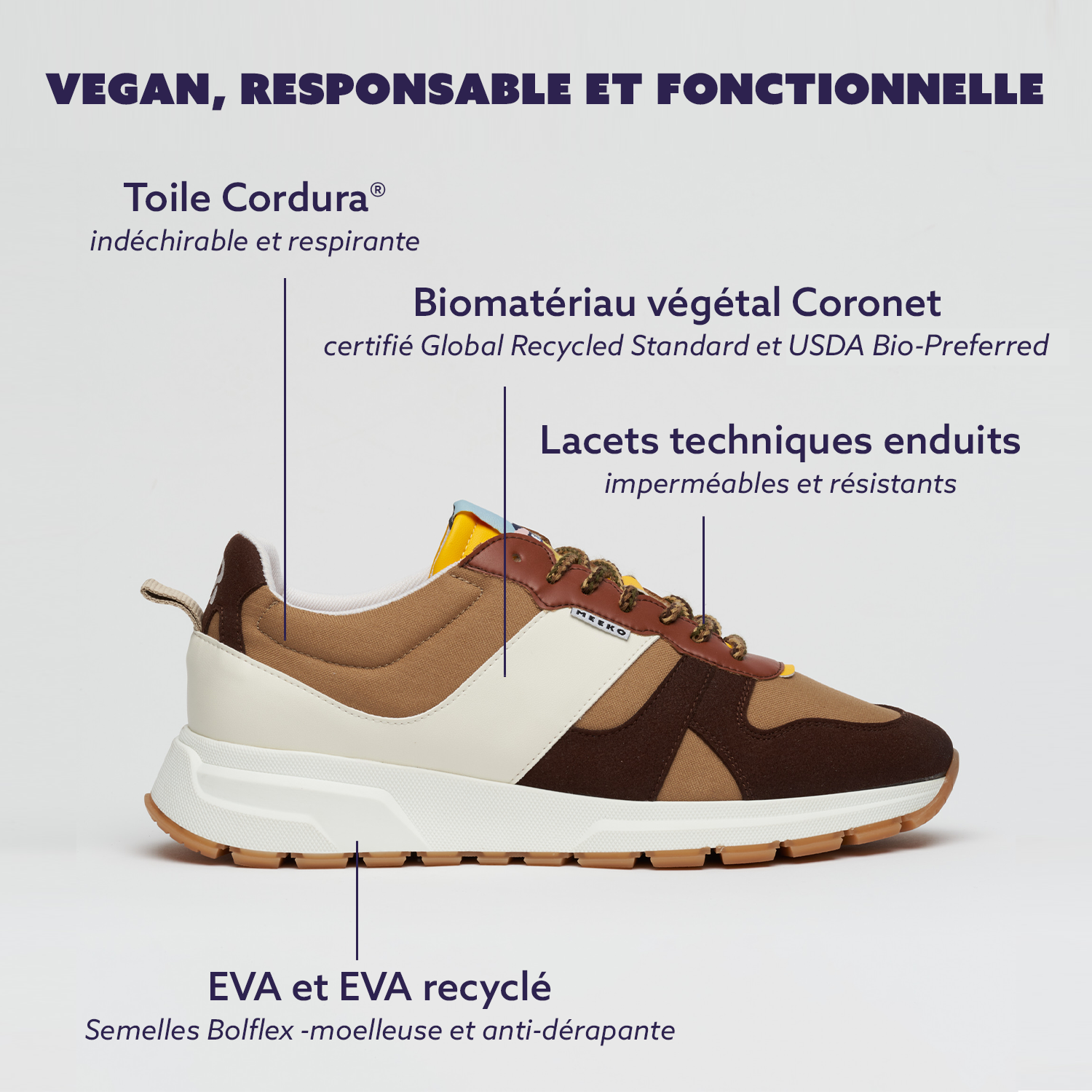How to leave a lighter carbon footprint? Durability in shoes
There is nothing we do on this Earth that does not have some impact on the planet. From what we eat to what we wear, we leave a carbon footprint, including on objects that literally leave a footprint: shoes.
We wear them during the day. We wear them at night. We wear them indoors, but also outdoors. No matter what we do or where we go, our shoes get us there. Footwear markets have even developed around various activities, especially outdoor ones such as running, cycling and hiking, creating demand for technical footwear. Thanks to the basketball players and rap stars who propelled sneaker culture in recent decades , the shoes have also become a fashion trend and a status symbol.
The materials needed and the processes applied to the manufacture of shoes that allow us to take part in these activities and cultures come from the Earth. And if we continue to take without giving back, whether for sport, fashion, or practical purposes, there won't be much left of our planet. It's urgent.
The impact of shoes
Fashion has a significant impact on the environment and footwear accounts for a fifth of this impact. However, like many other sectors, such as aviation, tourism and agriculture, fashion is striving to become more sustainable. And this movement is rapidly accelerating.
However, the shoe is lagging behind the rest of fashion and needs to catch up, especially considering it's a booming market. In 2019, over 24 billion pairs of shoes were produced. But what happens to all those shoes after they've worn out - and sometimes even before? Unfortunately, many end up in landfills where they take decades to break down, spilling chemicals as they go.
It's not even the most detrimental stage in a shoe's life cycle. The most harmful is the manufacturing, and even before, when the raw materials necessary for the production of the shoes are extracted. Many parts of the shoe are produced from petroleum-derived plastics. Other components, like virgin rubber and cotton, are not environmentally friendly or durable, while leather is often tanned with chrome, the world's fourth most dangerous pollutant.
The actual production of shoes also consumes a lot of energy and carbon, especially for supplying the factories. In addition to extraction and manufacturing, transport and shipping also play a role, whether it's the raw materials or the final product: the shoes you buy in stores or online. But before they even hit stores, they've consumed a massive amount of water and energy and produced carbon emissions that contribute to climate change.
It is also a very labour-intensive sector, where working conditions are not always optimal: workers are subject to air and noise pollution, and they do not generally receive only 2% of the final price of the shoe. As the shoe industry grew, mass production took precedence over craftsmanship, resulting in longer and longer working days and increasingly harsh conditions.
And it doesn't stop there. The consumer and what he does with his shoes also plays a role. It is therefore important that every aspect of a shoe's life cycle - from the extraction of raw materials to the destruction of the shoe - is taken into account.
Do we have lasting solutions?
Shoe manufacturers are now taking the lead in seeking sustainable solutions and implementing ethical labor practices. Smaller, eco- focused brands such as MEEKO are also stepping forward, prioritizing quality over quantity in an effort to make the industry more transparent and sustainable. Regulators and certification procedures have also come into play, such as the Fair Rubber Association , B-corp certification , and Fair Trade , creating and regulating sustainability standards and ensuring ethical practices.
As a shoe fan, sneaker collector or simple everyday wearer, you can also do a lot. With the multitude of new brands and options, choose to support sustainable brands.
MEEKO, for example, uses only REACH-certified materials (European standard attesting to the absence of toxic agents for humans or the environment), is 100% Vegan, and adopts local production.
If you want to wear leather, look for shoes whose leather comes from responsible tanneries.
Along with finding natural alternatives to high-carbon-footprint materials, the footwear industry is also turning to using repurposed materials, including ocean plastic, recycled polyester, and plastic water bottles. This is the case of MEEKO and its COCO PONGO . And every element of the shoe must be taken into account, even the laces. Modular design, which involves making shoes in such a way that if a part breaks, simply replaces or repairs it, rather than throwing away the entire pair and buying a new one, should be encouraged. So if your favorite sneakers or hiking shoes wear out, just replace or repair them instead of buying a new pair.
Longevity is the key to durability, so buy shoes that are durable and reliable, and wear your shoes until the (true) end of their life cycle.
Take care of your shoes and don't throw them away just because they're out of fashion. It is the concepts of fast-fashion and planned obsolescence that must be rejected. However, shoes wear out and, of course, children grow up without wearing them enough. Donate or pass on shoes that you no longer wear or that no longer fit. Find out if the brand or store where you bought your shoes takes back old shoes. Some brands have such programs in place, which involve donating returned shoes or breaking them down for reuse.
By putting the shoes back in the cycle, you close the manufacturing loop, creating a sustainable system that avoids landfilling materials and decreases the need for additional raw material extraction.
This circular system is also promoted through the concept of renting shoes, as opposed to buying. As people become increasingly more cost and environmentally conscious, this provides consumers with an alternative way to source footwear in a sustainable way.
Don't forget the packaging either, as this also plays a role. From shoeboxes to bags, packaging contributes to waste and emissions, whether during its manufacture or its subsequent disposal. Manufacturers are turning to compostable packaging or making it from recycled materials. Do you buy shoes in store? Carry them in their box instead of placing them in an unnecessary extra bag. If you don't store your shoes in their box, find another use for it.
The footwear industry and the consumer can still take many steps to reduce their energy and carbon impact. This is especially true for the early stages of a shoe's life cycle. Other solutions to be encouraged include using renewable energy, sourcing local materials, and implementing energy-efficient practices at various stages of shoe production. Although we all, young or old, need shoes, it is also the time to reach out to the younger generations we know. They often follow in the footsteps of their favorite celebrities and influencers - literally when it comes to footwear - but they are also driven by a heightened awareness of the need for environmental conservation, an awareness that makes them think twice. the food they eat, the way they travel and the shoes they wear.
